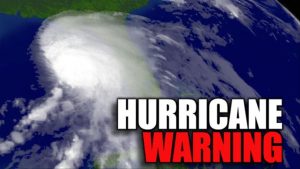September 10, 2018
What to Know Regarding Classes During Hurricane Florence
 From Ron Mitchelson, Provost and SVP for Academic Affairs
From Ron Mitchelson, Provost and SVP for Academic Affairs
Note in general we operate under the “Revised Policy for Making Up Missed Class Days” recommended by the Faculty Senate (Resolution #14-59) in April of 2014 and approved by Chancellor Ballard on May 21, 2014.
That policy aligns with the ECU’s and UNC’s Adverse Weather and Emergency Event Policy (effective since January 1, 2016). If the Chancellor (or designee) announces that classes are cancelled or that classes are to be held under an adverse weather advisory (an optional workday for faculty and staff), then:
- Students are allowed to make up any work missed.1. Students are allowed to make up any work missed.
- Faculty members should arrange to complete interrupted activities.
- There are no make-up days. Class time missed should be made up with alternative learning activities relevant to the class(es) missed at the discretion of the faculty members. However, the work assigned should be equivalent to the class time lost. Contingency plans are a very good idea during hurricane season and winter weather.
If classes are cancelled or the campus has declared any one of the three emergency conditions described below, then no class activity should be attempted and any due dates should be appropriately adjusted. Be aware that these provisions apply to both face-to-face and on-line (DE) courses and course activity. Under such adverse circumstances, the assumption should be made that students do not have access to necessary materials or technology. Again, under no circumstances should a student be penalized for missing work during an official closure or an adverse weather advisory.
A prolonged period of class cancellation or institutional closure might result in suspension of all activities and could require adoption of an alternative to face-to-face operations. ECU’s instructional continuity plan (Continuity of Instruction: During a Catastrophic Event Plan) for longer duration events recognizes two very different scenarios and you are encouraged to review these at the beginning of each semester. Most weather events are shorter termed and do not require adoption of a full alternative to face-to-face operations. In the vast majority of cases, we are making up work for one to three days.
In addition to the Chancellor’s authority to cancel classes, the Chancellor (or designee) has authority to declare any of the three emergency conditions stated below:
Condition 1 (Reduced Operations). Event has potential to affect local commuting, important campus services, and building/grounds functions. University may permit employee flexibility in reporting and leaving work based on personal circumstances. Leave-earning employees must code leave for work time missed.
Condition 2 (Suspended Operations). Event poses severe safety and logistical challenges. Few individuals should travel to or remain at the university. Leave-earning employees must code leave for work time missed.
Condition 3 (Closure). Limited to events that pose the most severe risks to health and safety. Closure requires consultation with UNC President. Leave-earning employees will not be required to code leave (or make up) for work time missed.
As the University pursues research and academic excellence, ensuring that individuals and units are prepared to respond to various types of operational disruptions is imperative. Continuity planning will help your unit formulate a strategy not only for major disasters (e.g. total loss of a building) but also lesser disruptions to service (e.g. internet / network outage). Developing a continuity of operations plan ensures that your unit can overcome the crisis in an optimum fashion. For more information, visit the Office of Environmental Health & Safety’s webpage.
- Categories:
- Academics
